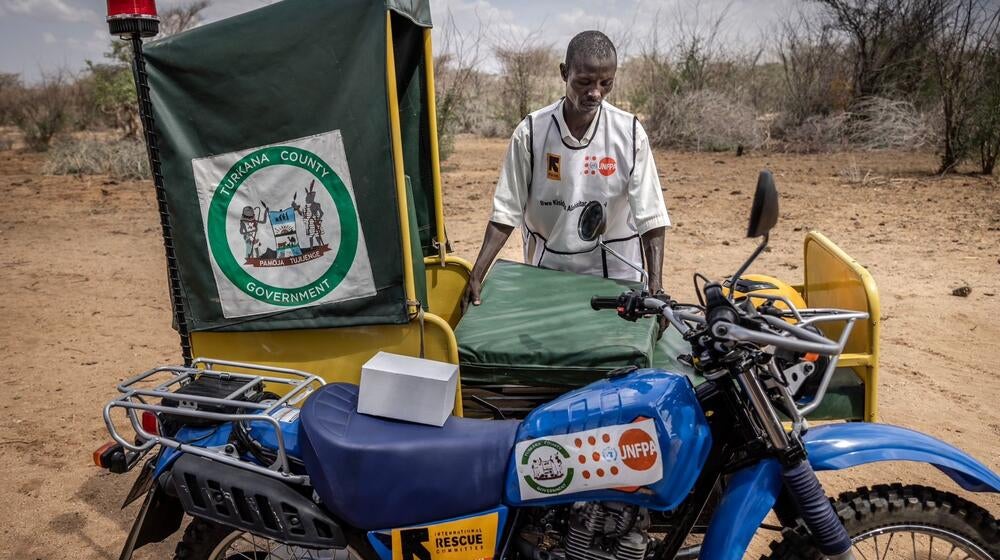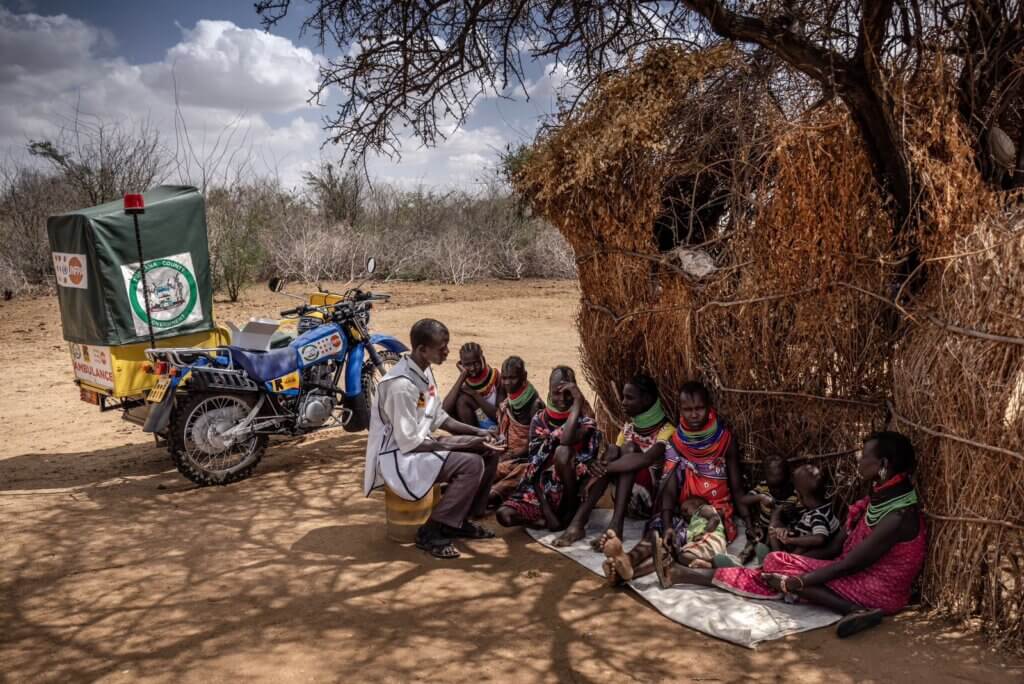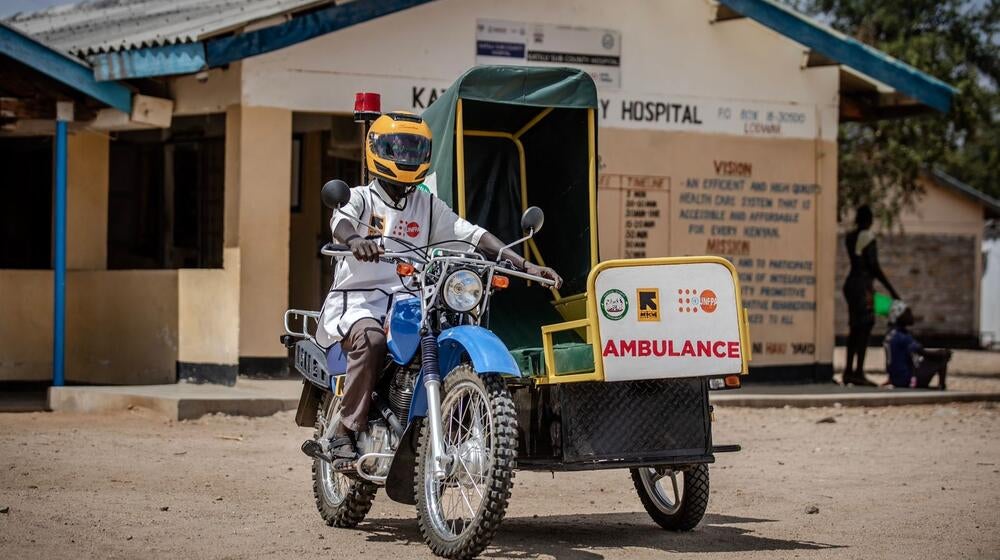As drought tightens its grip on Kenya, a motorcycle ambulance is helping women to access critical health care

TURKANA COUNTY, Kenya – “The hardship brought on by the drought has left many women weak and malnourished. I cannot imagine them giving birth without the support of a skilled health professional,” said Mark, a community health worker and ambulance driver for UNFPA at a hospital in Kenya’s Turkana County.
As the worst drought in 40 years blights the Horn of Africa, millions of lives are hanging in the balance. Even before the latest climate crisis, skilled birth attendance rates were low in Kenya. Despite progress in recent years, the country still has a high maternal death rate. Nearly 90 percent of these deaths are due to inadequate quality of care.
Mathew, a medical superintendent at a hospital in Kenya, explained that the drought has forced families to migrate ever further from health facilities in search of water, food and pasture for their animals. Midwives used to assist at least 60 births every month. But since the drought, he said, the number of prenatal visits has dwindled.
“We pride ourselves on having recorded zero maternal deaths in our facility over the last year,” said Mathew. “But now we have to follow women into their communities in order to reach them.”
All-terrain access

Mark and the hospital’s new motorcycle ambulance are helping them do just that. The bike provides emergency transport to the hospital. Often the patients who use the bike have no other way to get the lifesaving care they need.
With more than 11 years of experience, Mark has mastered the art of navigating both on and off-road terrain. He’s able to quickly locate a mother in urgent need of assistance, even in the most inaccessible areas.
“I became a community health worker because I saw the impact that a lack of proper health information and access to services was having on my people,” he explained. “When my wife got pregnant the first time, she gave birth at home. Our child developed health complications that have affected him into adulthood.”
Mark has been going door-to-door to reach more women and girls in drought-affected communities. He hopes to save lives by spreading the word about UNFPA’s motorcycle ambulance and encouraging expectant mothers in Kenya to call him any time they are in need, day or night. In just its first month of operation, the ambulance safely transported five women with obstetric emergencies to hospital. These women and their newborns likely wouldn’t have survived without Mark.

Helping Kenya’s mothers amid adversity
The motorbike can safely transport one patient, a community health worker, and emergency supplies for on-site treatment. This significantly reduces the time needed to deliver essential assistance in hard-to-reach communities.
“The stretcher can also be adjusted to the semi-upright position for the safe transfer of expectant mothers and patients with breathing problems,” said Isaac from UNFPA partner International Rescue Committee.
“In the past, women have given birth on the roadside while trekking to hospital because they live too far from a health facility,” explained Mark. “With the motorcycle ambulance, even if a woman delivers on the way, she is able to do so in a dignified manner, on a comfortable stretcher and with the help of a health-care worker and myself.”
More than 4.3 million people in Kenya are in need of humanitarian assistance due to the ongoing drought. 134,000 of these people are pregnant women or new moms. With your support, we can keep our lifesaving motorcycles on the road. Thank you for being there for women and girls in Kenya and around the world.